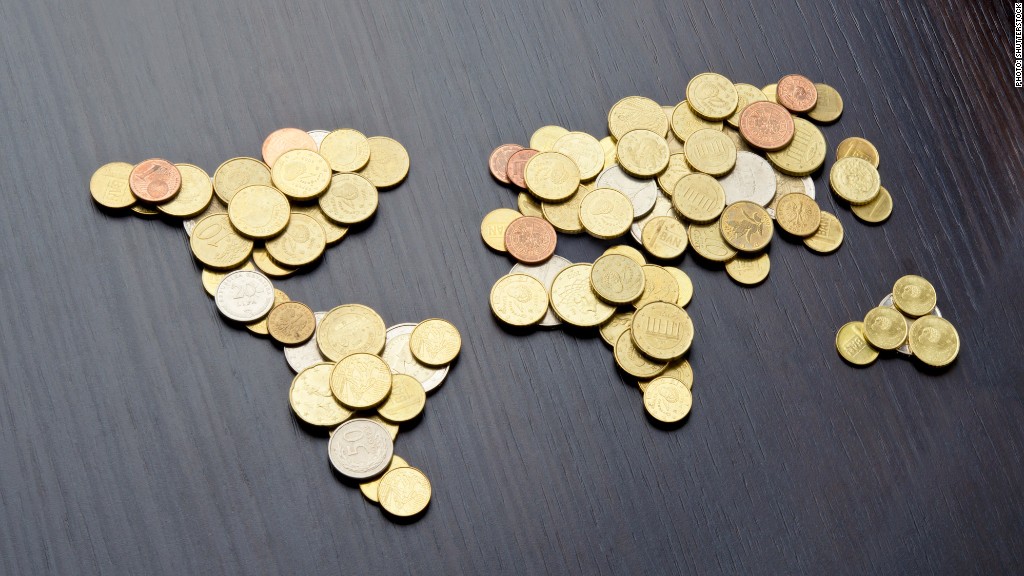
After a record run for U.S. stocks in 2013, it looks like some investors are now globetrotting for better bargains.
According to data from fund tracker Lipper, individual investors plowed $4.4 billion into funds that invest in stocks outside of the U.S. during the first half of the month. That's almost two-thirds of the money that flowed into all stock funds.
The bulk of that cash was pumped into funds with exposure to Germany, the United Kingdom, and Japan, according to Tom Roseen, head of research services at Lipper.
"What investors are basically doing here is making bets on developed international markets," he said.
That's a big turnaround from recent years, when a deep recession in Europe and stagnation in Japan had investors looking to emerging markets for growth. But the slowdown in India and China has given investors pause lately.
Related: Chinese IPOs already too hot?
Europe seems to be particularly attractive to many investors since there is a perception that the worst of the continent's economic problems appear to be over.
Jeff Sica, who manages $1 billion on behalf of wealthy individuals and families, said there's a lot of pent up demand in Europe as fears of a credit crisis fade.
"Europe has been priced for a banking catastrophe that didn't happen," he said.
Sica added that clients are also asking more about investing in Japanese stocks, which have soared amidst the government's easy money policies aimed at reversing decades of stalled growth.
But Sica cautions against putting money into Japan at the height of the market. The Nikkei 225, after all, did even better than the S&P 500's 30% gain last year. Japan's benchmark index went up nearly 57%.
"Japan is a disaster, it's going to implode," he said, adding that he tells clients to wait until Japanese stocks decline before investing.
Related: Japan's Abe says he is beating deflation
Japanese stocks are also more expensive than their U.S. counterparts. The Nikkei is trading at around 18.5 times 2014 earnings estimates, according to FactSet. The S&P 500 is trading at 15.6 times profit forecasts for this year.
But Mark Martiak, a senior wealth strategist with Premier Wealth/First Allied Securities, which manages $350 million, is still bullish on Japan.
He feels that Japan still has room to run given the country's manufacturing strength and competitiveness with China.
Since the fourth quarter of 2013, Martiak has been steadily increasing his clients' exposure to international stocks. He recommends that investors have 10% to 15% of their portfolio invested in developed markets outside of the U.S. and a just 5% to 10% weighting in emerging markets.
Related: Top stock picks from top pros
Still, he agrees with Sica about the prospects for Europe. Martiak said his clients are asking him to find undervalued stocks in Europe. He also thinks that low inflation and stimulus from the European Central Bank will help.
European stocks also look relatively cheap. The Stoxx 50 is trading at roughly 13.2 times 2014 earnings estimates.
Whether or not Europe or Japan is a better place to invest than the U.S. is still up for debate. But Brian Reed, chief economist of the Investment Company Institute, argues that all investors need some international exposure. The days of the U.S. being the only game in town are long gone.
"Some of the leading financial advice firms in early 2000's were recommending zero allocation outside of U.S.," Reed said. "There's now greater appreciation for the importance of having a global allocation in the average investor portfolio."
Roseen said that some investors may be going global so they don't have all their eggs in one basket. But he said that the international shift could also be due to a realization that the U.S. bull market could be nearing its end. In other words, some investors "really think the grass is greener on the other side."


